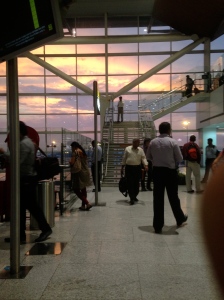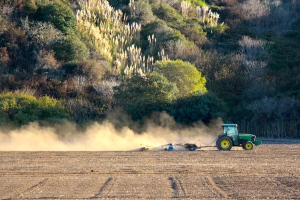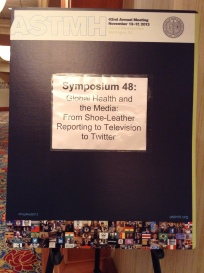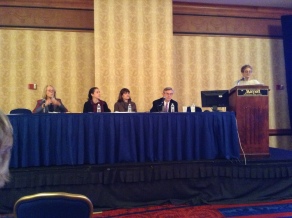Sometimes being friendly and non intimidating can be the worst- you get roped into weird conversations that seem to go on forever. But sometimes it really serves me well. My journalism school friends have observed that I can get pretty much anyone to talk with me. This is clearly a boon for a reporter or a doctor. I’ve also exploited that skill for fund raising, networking but also just for fun.
Sidebar: On the plane back from LA a few years ago I was seated next to Tony Shalhoub (actor in the TV series “Monk”). He struck up a conversation after seeing my college physics textbook (wow am I glad not to be a pre-med anymore). We ended up talking the entire flight about life, acting, germaphobia and Martha’s Vineyard. Turns out he has a daughter my age. We shared an Emergen-C and he gave me his email in case I ever needed a place to stay on the vineyard. Random but very fun.
Fast forward to now: Flying back from the Tropical Medicine conference on Sunday I ended up with the trifecta of airline badness: middle seat, last row, close proximity to crying baby. Curse the fates! But I was seated next to a young air force engineer/pilot who was making hysterical wisecracks about our flight delay. We ended up talking the whole flight and he taught me to play Candy Crush (still don’t understand the appeal) and helped me with my Crosswords. The flight flew by. On the second leg of my journey I struck up a conversation with my seatmate who literally could not have been more of an Oregonian- he was friendly, wearing a plaid shirt and had a hipster mustache with waxed ends. I was just waiting for him to pull out a banjo and some sort of artisan pickled food item. He was reading World War Z so we started talking about zombies and he casually mentioned that the CDC has a plan for the zombie apocalypse.
I was so excited to go home and research this. Turns out that he is right: the CDC absolutely has published materials delineating how people should brace for the zombie apocalypse. I guess it helps encourage basic emergency preparedness. Turns out people are more willing to prepare for the zombie apocalypse than, say, a natural disaster (sigh). Suppose I shouldn’t be surprised given that there is apparently a commercial market for a $24,000 zombie apocalypse survival kit.
 So how does one prepare for the possibility of a siege by the un-dead? According to the CDC everyone should have an emergency preparedness kit and plan and stockpile basic necessities in your home.
So how does one prepare for the possibility of a siege by the un-dead? According to the CDC everyone should have an emergency preparedness kit and plan and stockpile basic necessities in your home.
From the CDC website: “As it turns out what first began as a tongue in cheek campaign to engage new audiences with preparedness messages has proven to be a very effective platform. We continue to reach and engage a wide variety of audiences on all hazards preparedness via Zombie Preparedness.” Dr. Ali Khan, Director of CDC’s Office of Public Health Preparedness and Response, agrees: “If you are generally well equipped to deal with a zombie apocalypse you will be prepared for a hurricane, pandemic, earthquake, or terrorist attack.”
On the site is a virtual comic book, posters, a novella and even a lesson plans that uses the idea of a zombie apocalypse to help teach kids about pandemics.
Love the idea of making a public health message a little more fun. BRB gotta go stockpile some water, a flashlight and maybe some kind of zombie killing laser. If I had never sat next to the Oregonian guy I would never have known. The things you learn on planes.



 so derelict in my blogging given that I’ve been at journalism school. But the reason for my silence is not that I’ve gotten lazy, lost interest, or met a boy and eloped in the Caribbean. Rather, I’ve just been focusing on…well, journalism.
so derelict in my blogging given that I’ve been at journalism school. But the reason for my silence is not that I’ve gotten lazy, lost interest, or met a boy and eloped in the Caribbean. Rather, I’ve just been focusing on…well, journalism.


